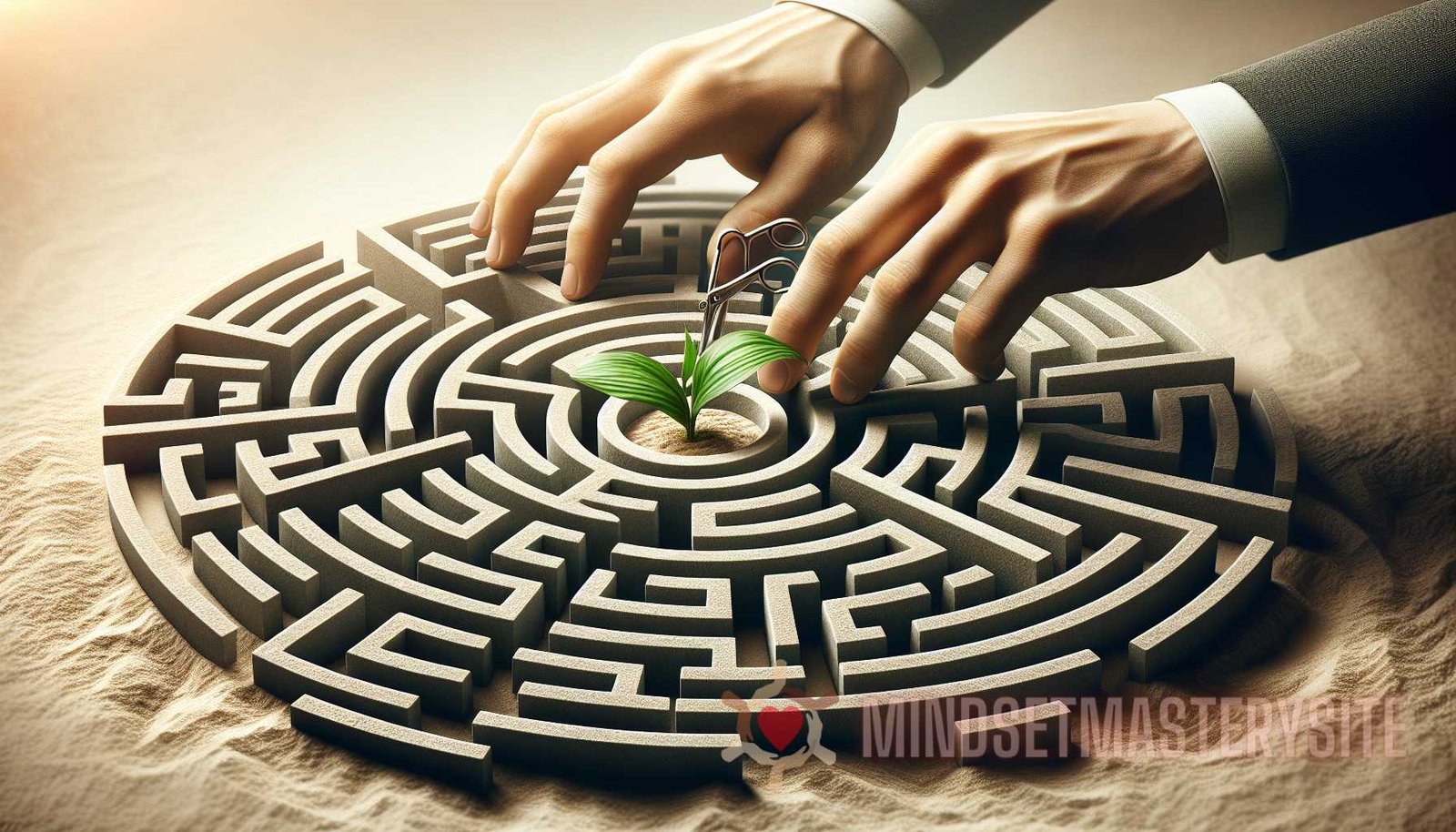Growth Mindset Success: Embracing Challenges for Personal and Professional Growth
Success in life, whether it be in personal relationships, education, or career, is often attributed to having a growth mindset. The concept of a growth mindset, popularized by psychologist Carol Dweck, suggests that individuals who believe their abilities can be developed through hard work, dedication, and resilience are more likely to overcome challenges and achieve success.
In this comprehensive guide, we will delve into the power of a growth mindset in unlocking success, particularly through embracing challenges. We will explore the science behind the growth mindset, highlight its benefits, provide practical strategies for cultivating a growth mindset, and illustrate real-life examples of individuals who have achieved incredible success by adopting this mindset.
Understanding the Growth Mindset
The growth mindset is based on the belief that intelligence, talent, and abilities are not fixed traits, but rather can be developed through effort and perseverance. In contrast, individuals with a fixed mindset believe that qualities such as intelligence and talent are innate and cannot be changed.
According to Carol Dweck, individuals with a growth mindset are more likely to embrace challenges, persist in the face of setbacks, see effort as a necessary part of achieving mastery, and learn from criticism. On the other hand, those with a fixed mindset tend to avoid challenges, give up easily when faced with obstacles, view effort as fruitless, and feel threatened by the success of others.
Research has shown that individuals with a growth mindset have higher levels of motivation, resilience, and self-confidence. They are more likely to set ambitious goals, work hard to achieve them, and view failures as opportunities for learning and growth.
Developing a growth mindset is not only beneficial for personal growth but also essential for professional success. In today’s fast-changing and competitive world, individuals who possess a growth mindset are more adaptable, open to new challenges, and resilient in the face of setbacks. They are better equipped to embrace change, think creatively, and continuously learn and improve.
The Benefits of Embracing Challenges
Embracing challenges is a crucial aspect of developing a growth mindset. Rather than avoiding difficulties, individuals with a growth mindset actively seek out challenges, seeing them as opportunities for growth and development. This approach has numerous benefits:
- Improved resilience: Embracing challenges helps individuals develop resilience, enabling them to bounce back from setbacks and persevere in the face of adversity.
- Increased motivation: Challenges provide individuals with goals that can ignite their motivation and drive them to achieve more.
- Enhanced learning: Facing challenges head-on exposes individuals to new experiences and knowledge, facilitating continuous learning and personal growth.
- Strengthened problem-solving skills: Challenging situations require individuals to think critically, develop effective strategies, and find innovative solutions.
- Heightened creativity: When faced with challenges, individuals are forced to think outside the box and come up with inventive ideas and approaches.
- Greater self-confidence: Successfully overcoming challenges boosts self-confidence and self-esteem, reinforcing the belief that one has the ability to overcome future obstacles.
- Improved performance: Embracing challenges and adopting a growth mindset leads to improved performance in various areas of life, including academics, career, and personal relationships.
These benefits are not limited to any specific area of life. Embracing challenges and adopting a growth mindset can lead to success in all aspects of life, from personal growth to professional achievements.
Cultivating a Growth Mindset
While some individuals may naturally possess a growth mindset, it is a trait that can be developed and cultivated over time. Cultivating a growth mindset involves a combination of self-reflection, understanding the power of effort and perseverance, and adopting specific strategies:
- Self-reflection: Reflect on your beliefs about intelligence and abilities. Are they fixed or malleable? Challenge any fixed mindset thoughts and replace them with growth mindset beliefs.
- Embrace challenges: Seek out opportunities to step out of your comfort zone and take on challenges. Embrace failure as a necessary part of the learning process.
- See effort as a path to mastery: Instead of viewing effort as a sign of weakness or lack of intelligence, reframe it as an essential ingredient for growth and development.
- Emphasize the power of “yet”: Instead of saying “I can’t do it,” add the word “yet” to remind yourself that you are on a journey of growth and improvement.
- Persist in the face of setbacks: When faced with obstacles, remind yourself that setbacks are temporary and can be overcome through dedication and perseverance.
- Cultivate a love for learning: Develop a hunger for knowledge and continuous learning. Seek out opportunities to expand your skills and knowledge in different areas.
- Seek constructive feedback: View feedback as a valuable tool for growth and improvement. Use it to identify areas for development and make necessary adjustments.
- Surround yourself with growth-minded individuals: Choose to spend time with people who share and support your growth mindset. Engaging in discussions and exchanging ideas with like-minded individuals can help reinforce your growth-oriented beliefs.
By implementing these strategies and consistently practicing them, you can gradually shift your mindset from fixed to growth, leading to personal and professional growth.

Real-Life Examples of Growth Mindset Success
Countless individuals from a wide range of fields have achieved tremendous success by embracing challenges and adopting a growth mindset. Let’s explore a few notable examples:
Thomas Edison
Thomas Edison, one of history’s most renowned inventors, epitomizes the power of a growth mindset. Despite encountering thousands of failures while inventing the electric light bulb, Edison persevered and famously stated, “I have not failed. I’ve just found 10,000 ways that won’t work.” His unwavering belief in his abilities and his willingness to learn from each failure eventually led to his success, revolutionizing the world with the invention of the practical incandescent light bulb.
Oprah Winfrey
Oprah Winfrey, the media mogul and philanthropist, is another shining example of someone who has embraced challenges and used them as stepping stones to success. Despite a challenging upbringing and experiencing numerous setbacks, Winfrey persisted, became the first African American woman to host a national talk show, and built a media empire. Her resilience, determination, and commitment to personal growth have made her one of the most influential and successful women in the world.
Michael Jordan
Michael Jordan, widely regarded as one of the greatest basketball players of all time, failed to make his high school varsity basketball team. Instead of giving up, Jordan used this setback as motivation to work harder, develop his skills, and become the best basketball player he could be. His growth mindset, combined with his unmatched work ethic, led him to win six NBA championships and earn numerous accolades throughout his career.
These examples demonstrate how individuals who embrace challenges and adopt a growth mindset can not only overcome obstacles but also achieve extraordinary success.
The Link Between Embracing Challenges and Success: A Scientific Perspective
Scientific research has repeatedly shown a strong correlation between embracing challenges and achieving success. Let’s take a closer look at some of the key findings that support this link:
The Neuroscience of a Growth Mindset
Neuroscience studies have demonstrated that individuals with a growth mindset exhibit different brain activity compared to those with a fixed mindset. MRI scans have revealed that individuals with a growth mindset have increased brain activity in regions associated with learning, motivation, and resilience, such as the prefrontal cortex.
These findings suggest that individuals with a growth mindset are more likely to approach challenges with a positive attitude, view them as opportunities for growth, and engage in active problem-solving strategies.
The Impact of Mindset on Performance
A seminal study conducted by Carol Dweck and her colleagues in 2007 examined the impact of mindset on performance. In the study, students were randomly assigned to either a growth mindset or fixed mindset condition. The researchers found that students with a growth mindset outperformed those with a fixed mindset on a challenging problem-solving task.
This study, along with subsequent research, has consistently demonstrated that individuals with a growth mindset are more likely to excel academically, professionally, and creatively. Their belief in the power of effort and dedication fuels their motivation, resilience, and ability to overcome obstacles.
The Role of Resilience in Success
Resilience, the ability to bounce back from setbacks and adapt to new challenges, is a key characteristic of individuals with a growth mindset. Research has shown that resilient individuals are more likely to achieve success in various domains, including education, career, and personal relationships.

In one study conducted by Angela Duckworth and her colleagues, it was found that resilience was a stronger predictor of success than intelligence. Individuals who possessed a growth mindset and displayed high levels of resilience were more likely to achieve their goals and persevere in the face of adversity.
Applied to the Workplace
The benefits of a growth mindset extend beyond personal achievements; they also positively impact organizational success. In a workplace context, employees with a growth mindset are more likely to embrace challenges, seek development opportunities, and approach their work with a growth-oriented mindset.
Organizations that foster a growth mindset culture tend to have higher levels of innovation, employee engagement, and overall performance. Employees are more likely to be proactive, take on challenging assignments, and continuously learn and improve.
Growth Mindset Success in Education
One area where the impact of a growth mindset is particularly evident is in education. Numerous studies have shown that students who adopt a growth mindset tend to perform better academically and are more motivated to learn. Let’s explore how a growth mindset contributes to educational success:
The Power of “Yet” in Education
When students adopt a growth mindset, they no longer view their abilities as fixed but as potentialities that can be developed with effort and practice. One powerful word that can cultivate a growth mindset is “yet.” Encouraging students to say “I haven’t mastered this concept yet” rather than “I can’t do it” shifts their focus from a fixed mindset to a growth mindset.
By embracing the idea that they are on a learning journey, students become more open and receptive to challenges and setbacks. They understand that setbacks are temporary and opportunities for growth and improvement. This mindset shift leads to increased motivation, engagement, and a love for learning.
Changing the Narrative on Failure
In a growth mindset environment, failure is not something to be feared or avoided but an essential part of the learning process. Students are encouraged to view mistakes as opportunities to learn, grow, and refine their strategies.
Research has shown that students who have a growth mindset and are taught that the brain can grow and change tend to embrace challenges and persist in the face of failure. They see setbacks as feedback and use it to adjust their approach and improve their performance.
Praising Effort and Process
When it comes to giving feedback and praise, focusing on effort and the process of learning is more effective than simply praising intelligence or talent. Recognizing the hard work, dedication, and resilience that students put into their learning encourages a growth mindset and emphasizes the importance of effort in achieving success.
By praising effort and process, educators can motivate students to work hard, take risks, and view challenges as opportunities for growth. This approach fosters a love for learning and a desire for continuous improvement.
Conclusion
Embracing challenges is the key to unlocking success in all areas of life. By cultivating a growth mindset and adopting strategies that promote a positive attitude towards challenges, individuals can overcome obstacles, achieve personal and professional growth, and ultimately reach their full potential.
A growth mindset not only enhances resilience, motivation, and self-confidence, but it also promotes continuous learning, problem-solving, and creativity. Individuals with a growth mindset are better equipped to navigate the ever-changing world and seize opportunities for growth and success.
As you embark on your own journey towards a growth mindset, remember that challenges are not roadblocks but stepping stones to success. Embrace them, learn from them, and allow them to propel you forward on your path to personal and professional excellence.


